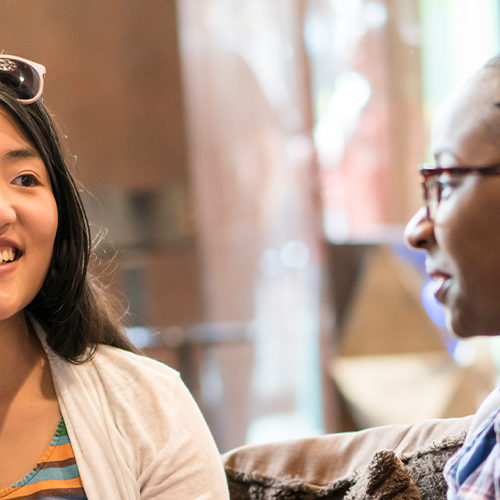Soon after the Spirit of God is poured out in the upper room, the book of Acts pans over to a scene describing the fellowship of believers.
Acts 4:44-47 says, “And all who believed were together and had all things in common. And they were selling their possessions and belongings and distributing the proceeds to all, as any had need. And day by day, attending the temple together and breaking bread in their homes, they received their food with glad and generous hearts, praising God and having favor with all the people. And the Lord added to their number day by day those who were being saved.”
This fellowship was characterized by unity. These believers had all things in common. They were known for their selflessness, which led them to sell their possessions and belongings to take care of those among them who were in need. They marked the surrounding culture by their radical hospitality, attending their place of worship together as they broke bread and praised God with glad and generous hearts. Their fellowship had God’s favor upon it. Their love for one another made them a rare contrast against the loveless world around them. As a result, the Lord added to their number day by day, many were getting saved. Did you catch that? Many were getting saved because this fellowship of believers attracted seekers day by day.
Too often when we meet international students and befriend them, they become attached to one member of our group, the one that initially befriends them. Their association to that member, while endearing in certain ways, might become the very reason that impedes their full entry into the fellowship. I‘ve heard students quip, as they refer to international students, “That’s Michael’s Chinese friend,” or “That is Kate’s friend from Finland.” Having the mentality that the international student is simply someone else’s friend absolves us of the personal responsibility to welcome and befriend them.
The fellowship of believers in the book of Acts had lives so tightly woven together that it would have been difficult for a non-believer to stay friends with just one of them for very long. Their culture emphasized reliance on God and others. Such a culture is a place where faith can bloom; this is why the Lord added many to their fellowship who were getting saved.
In a personal experiment conducted over fifteen years, I’ve observed that international students who were befriended by three or more persons of faith within a group had a greater chance of becoming a believer, than those that had only one believing friend.
This fellowship of believers encapsulating our life together is only secondary to our life with Jesus. This is why “Fellowship” remains an important, irreplaceable element to an international student’s journey from friendship to leadership.
This fellowship of believers encapsulating our life together is only secondary to our life with Jesus.
Do your international students have opportunities to interact with your other friends? Or do you keep them separate, cordoned off, in time-delineated parcels that fit neatly within your Christian service and outreach checkboxes?
To assist you in the great task of bridging the gap between the Kingdom of God and your international friend, remember to press into the greatest God-given asset that will support you in your efforts – the fellowship of believers that is all around you.
So how can you introduce your international friend to the fellowship of believers you belong to?
Firstly, think about them personally instead of programmatically. Rather than inviting them to an international student event hosted by your group, or inviting them to your large group, invite them to something you and your friends are doing as part of your normal friendship rhythms. Do you go to the gym together? Do you cook meals and share them with friends once a week? Do you take part in entertainment such as watching a favorite show? All of these life-sharing activities, while overtly non-spiritual, can become great starting points for your international friends’ entry into your fellowship.
Once you have let them infiltrate your life rhythms, widen the circle from your closest friends in your fellowship, to those whom you are still getting to know. Bring your international students with you as you interact with and build new friendships with others in your fellowship. As more friendships are made, begin inviting your international friends to church, or large/small group meetings.
At all times, be looking for an opportunity to widen your international student’s sphere of Christian influence.
Bringing an international student into the fellowship of believers takes time and can often be challenging. However, persevering through the obstacles and discomfort to welcome these students in, along with allowing the Holy Spirit to move, can change the entire trajectory of their lives


